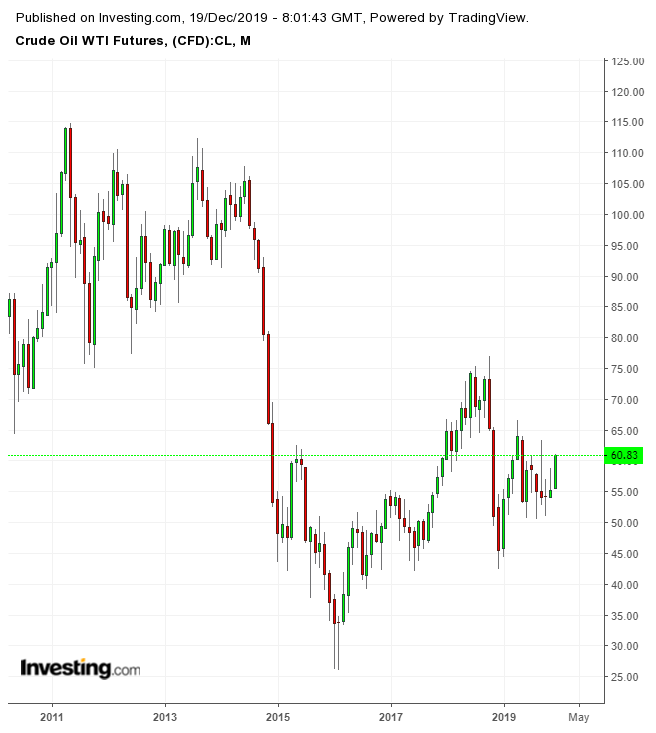For oil traders focused on the production side of the industry, a serious concern is always the ability to identify the so-called swing producers, usually identified by a country, capable of moving the price of crude up or down based on their own policies.
In order for a swing producer to shift the price of the commodity, they must be able to either flood the market with enough additional oil to cause oversupply or cut production significantly enough to effect undersupply or at least create the impression of oversupply or undersupply among speculators. For a swing producer to have the power to push prices up, there must be no other player in the global market with significant spare capacity to make up the difference.
Right now, as we head into the new decade, there are no swing producers. Here's what that means for the market:

Saudi Arabia: The Almost Swing Producer
Saudi Arabia is the closest we have to a swing producer. Presently responsible for just under 10 million barrels per day, Saudi Arabia has the ability to generate up to its current capacity of 12 million barrels per day or more. That would indicate enough of an increase to drop prices on the global markets.
However, Saudi Arabia is very unlikely to significantly increase production now because it must abide by OPEC quotas. Increased production is not great for the health of its reserves since it wants to always maintain enough spare capacity in case of emergencies and it does not want lower prices at the moment. At some point, Saudi Arabia may change its mind, especially to increase Aramco (SE:2222) profits.
At present, Saudi Arabia does not have the ability to boost prices. Of course, like any producer, it can decrease, halt or suspend its own production. Saudi Arabia is in the most practical position to do this as it does not desperately need the cash in the short term. However, if Saudi Arabia were to drastically decrease production in an effort to raise crude prices, other producers like the U.S., Brazil, Norway, and maybe Canada could fill the void. Moreover, some of Saudi Arabia’s OPEC and OPEC + partners would cheat on their quotas and overproduce if the economics were too tempting.
United States: Biggest Player, No Synchronization
The other name that often comes up as a swing producer these days is the U.S. While the nation produces the largest amount of oil, at a rate of 12.8 million barrels per day in November, it cannot be a swing producer. It lacks any centralized production policy, and individual producing companies would violate U.S. antitrust laws if they coordinated. Therefore, it cannot decrease or increase production in a synchronized effort, even if the individual companies wanted to.
Sometimes U.S. producers appear to act in unison because they are all reacting to the same economic situations, but they are not a single entity, and they do not function as a swing producer.
The total global oil production continues to hover somewhere around 100 million barrels per day. A significant change from that number—up or down—will alter the price of oil. Yet, traders and market watchers should not expect any individual country to make that change. Instead, they should look for changes to be products of the economy and the market itself.
